A Make Do Economy
55 years of life under Cuban communist rule has shown us a
mixed bag or solutions to everyday problems in the island nation. Along Central Havana's Prada Boulevard, large
restored homes show us their newly restored faces, while in Old Havana many
streets feature examples of Spanish colonial buildings in their final
state—collapsed into a pile of rubble.
You don't find supermarkets overflowing with foods and
household products. Instead, small farmers pack their produce into a car
or truck and head to the city to sell it in neighborhood food stands, Even if supermarkets were common, customers
who could pay their prices would be rare.
The average Cuban is poor by western standards.
But while hardships abound, human creativity provides solutions
to tough problems like getting to work every day in a city with an overloaded
bus system. Thanks partly to car prices
pushed to exorbitant levels by fees and taxes, most Cubans don't have cars. Often the ones that have a car have old
American cars from the 1950's. If you
have a car, one way to make money is to provide a jitney service—cruising the
streets in search of pedestrians who will pay a small fee if the driver is
going their way. If you see an ancient
Chevy or Plymouth, you can often flag him down using hand signals that will
tell where you're going.
And when that 55 Oldsmobile won't go another yard under its
own power, it isn't junked, it is re-motored.
A jitney driver told me his old Buick had a Toyota truck motor, and it
sounded like a Patton tank without a muffler, "Make do" is the name
of the game in Cuba.
In our world of email, Internet, and digital ubiquity, it's
hard to imagine most Cubans don't have an email connection, much less a
connection to the Internet. How can Nora
in Havana send a small package of medicine to Gladis in Varadero? One creative way is via the intercity bus
system. The bus drivers moonlight as a
sort of UPS system in miniature. It's
pretty creative if you think about it—intercity buses serve the entire island. The recipient needs to know the message or
package is coming, and he or he can pick it up at the bus station. Necessity is the mother of invention.
Large animals are the property of the state, and small
animals (like household pets) are largely ignored by the government. So where does one get vet meds in small doses
for dogs and cats? Again a creative
solution has developed. Medicines for
large animals close to their expiration date are sold to the public. They are ground to a powder and repackaged
for dogs and cats. Unfortunately,
anesthetics and vaccines aren't available by this method, but many household
pets have benefited from this "make do" solution.
Life in Cuba is a quilt of patches. They may seem funny to us, but these homemade
fixes make life more manageable for the Cubans.
They show us the creativity of the island people just as much as the
works of Cuba's artists and musicians do.
Les Inglis













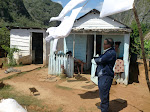




























































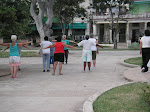
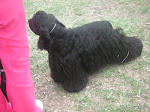
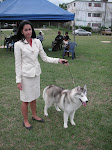


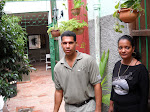


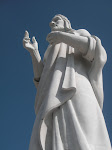

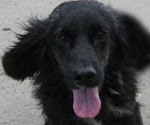
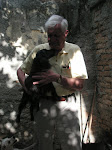



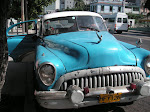

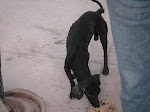



No comments:
Post a Comment